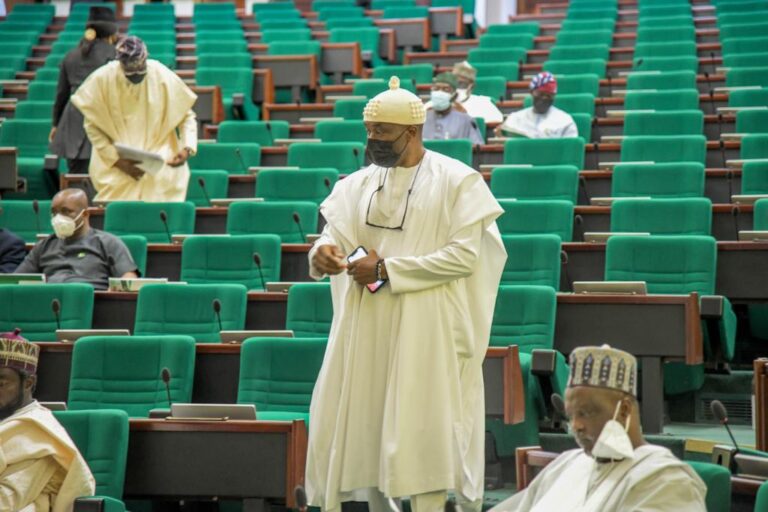The bill for an act to amend the Nigeria Meteorological Agency Act to grant the Nigeria Meteorological Agency sole authority to grant approvals and licenses for the establishment of meteorological stations and other related matters sponsored by the Member representing Bende Federal Constituency and Spokesperson of the House of Representatives, Rep. Benjamin Kalu has been signed into law by the President Muhammadu Buhari on Wednesday, August 31, 2022.
The bill which was first read on Wednesday, July 3rd, 2019 seeks to repeal the Nigerian Metrological Agency (Establishment, etc.) Act, No. 9 of 2003, enacts the Nigerian Meteorological Agency (Establishment) Act, to provide for a comprehensive legal and institutional framework for the regulation of meteorology in Nigeria. Further, advise the Federal Government on all aspects of meteorology; project, prepare and interpret government policies in the field of meteorology; and issue weather forecasts for the safe operation of air-crafts, ocean-going vessels, and oil rigs in accordance with the International Civil Aviation Organization (ICAO) and World Meteorological Organization (WMO) Standard and Recommended Practices (SARPs).
In his lead debate, the member stated that following the massive land mass of the Country, 54 meteorological observation stations nationwide is a far cry from the required 9000 observation stations also stating the difficulty for the government to fund the establishment of the stations. According to the debate:
“Section 7(1)(q) of the Nigeria Meteorological Agency Act provides for the agency to be the sole authority that approves and establishes meteorological centers in Nigeria. This inadvertently makes it unlawful for any other person to establish a meteorological station anywhere in Nigeria irrespective of its purposes. This means that all the universities, polytechnics, colleges, secondary schools, and even private sectors that own and run meteorological observation do so contrary to the laws of the land.
You will acknowledge the fact that 54 meteorological observation stations nationwide are a far cry from the required 9000 observation stations. What then do we do to resolve this issue in and timely also?
It is also worrisome that we are far below the expectation and recommendation of the World Meteorological Organization, we must realize how difficult it is for government to directly fund through the agency, the establishment of as many as 9000 meteorological stations. The way to go therefore is to open up the sector by identifying the existing stations that are not part of the network run by the agency, approve and license them and as well enter into collaboration with them, upgrade them, and provide them with the necessary support. At the moment there are about 40 universities, 36 polytechnics and 32 colleges of education, and thousands of secondary schools that have meteorological stations. Licensing and regulating the existing meteorological stations as well as other intending stations will be a quick way of improving upon the density of meteorological stations across the federation.”
With this Act becoming law, the Agency is empowered by this Act as the sole authority to approve, license, certify and regulate the establishment of meteorological stations for meteorological observations, the operators and operating personnel at a fee to be prescribed by the Agency and where necessary, make regulation in this regard, save for aeronautical meteorological services.
Historically, this would be one of the rare moments that a bill sponsored by a first-time member of the House of Representatives becomes law.
Rep. Benjamin Kalu who was ecstatic with this development while speaking with a Drum Africa News Correspondent expressed delight in seeing that his efforts to on this bill have come to fruition. The lawmaker recalled that this was the second bill that he sponsored on the floor of the House upon resumption into office.
Rep. Kalu thanked the President for his commitment to the welfare of the citizens by prioritizing and signing this Bill into Law, adding that with this law, there will be an increase in the density of meteorological observation stations across the federation to meet the standards set by the World Meteorological Organization among other things. But more importantly, more increase in the number of meteorological observation stations will improve the quality of data collated across the federation and this would result in more accurate predictions and forecasts which will ultimately ensure human safety and increase productivity in agriculture, agro-based industrial productions, air and sea travel, commerce, tourism, etc.
He also commended the Agency for its cooperation and collaboration on data sharing and its effort to ensure the existing gap on information and data in the agency is successfully bridged.

